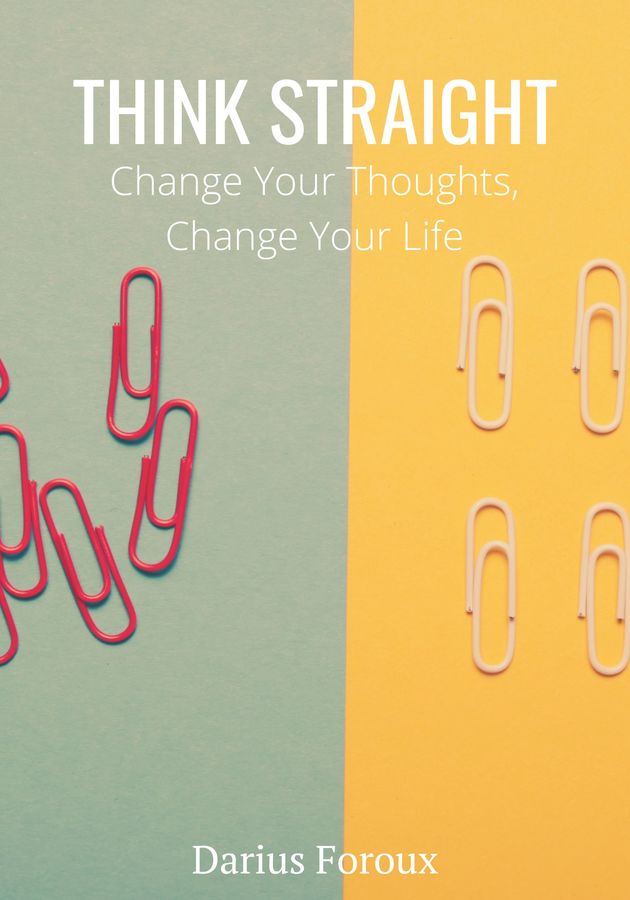“Our lives are shaped as profoundly by personality as by gender or race,” writes Susan Cain in the introduction chapter of “Quiet,” the number one nonfiction book of 2012, and one of the “best brainy books of the decade” according to The Guardian. “And the single most important aspect of personality,” she goes on, “is where we fall on the introvert-extrovert spectrum.”
“Quiet,” as can be deduced from the title, explores the world of the introverts – the reflective, bookish, unassuming, subtle, gentle, solitude-seeking, risk-averse, thin-skinned and, most importantly, disregarded half of the world’s population.
So, get ready to find out how modern societies systematically stifle the genius and creativity of introverted people and prepare to discover why the “Extrovert Ideal” is as dangerous almost as it is ubiquitous.
The north and south of temperament
In 1921, Carl Jung published “a bombshell of a book” titled “Psychological Types.” Quoted and discussed at length countless times since then, the book introduced the world to the concepts “introvert” and “extrovert” as the central building blocks of personality. These two terms may have signified slightly different things for different authors across the past century, but their quintessence has remained virtually unaffected ever since 1921, and now can be intuitively grasped even by people who have never heard of Jung.
Extroverts, as everybody knows, are talkative and enthusiastic. They are assertive and sociable and tend to enjoy human interactions – from which they obtain most gratification. In fact, they are so much drawn to the external life of people and activities that, almost counterintuitively, they can only recharge their batteries by plunging into an adventure with a group of friends. They tend to feel empty when they don’t socialize enough.
Extroverts are risk-takers who prefer to multitask rather than to focus, loud and exuberant parties to small-scale birthday celebrations, a host of Instagram and Facebook followers to a small group of intimate friends. Extroverts think less and do more, which is why they tend to have more sex partners and divorces than introverts. They react quickly: if an extrovert, for example, loses money by speculating on the stock market, their knee-jerk reaction is to invest some more and immediately turn the loss into a win.
Introverts, on the other hand, are people primarily interested in their own mental selves. They are drawn to the inner world of their thoughts and feelings and focus on the meaning they can make out of the events happening around them – rather than experiencing these events. Since they can only recharge their batteries by being alone, they are focused and tend to feel good only when slightly stimulated. Because of this, they would rather read a book or watch a movie on any given Friday night than go out or make an appearance at a friend’s party.
Introverts are pretty immune to things like social status and popular recognition: to quote Jim Morrison, they prefer – “a feast of friends to the giant family” and a long, intimate, and honest one-on-one, in-person conversation to a Google chat or a phone call. If an introvert loses money speculating on the stock market, they’ll probably take some time rethinking the original decision before deciding to invest once again.
The extrovert ideal: a modern-world problem
Even though it’s difficult to say that the introvert-extrovert spectrum is more systematically scrutinized before Jung popularized it, it does have a long and storied tradition. Introverts and extroverts appear both in the Bible and in the writings of Greek and Roman physicians, and poets and philosophers have been thinking along similar lines ever since the dawn of recorded time. “As with other complementary pairings, humanity would be unrecognizable, and vastly diminished, without both personality styles,” writes Cain, listing masculinity and femininity, East and West, liberal and conservative.
However, the problem is that our modern social-media-ruled world allows only “for a remarkably narrow range of personality styles.” All of them gravitate toward the south of human temperament: as most self-help books state, put yourself out there if you want to succeed in life; you need to risk to win, you need to build a network of friends and followers if you want your business to grow. Everyone seems to advocate extroversion: whether it happens via commercials or Facebook, billboards or books, movies or Instagram stories – we are constantly bombarded with photoshopped images and videos of lavish parties and imaginary travels around the world and also told that we need to be bold and sociable if we want to be great and happy.
Cain calls this value system the “Extrovert Ideal” and describes it as “the omnipresent belief that the ideal self is gregarious, alpha, and comfortable in the spotlight.” Whether in school or the workplace, introverts seem to be systematically marginalized – just because they are born with a certain set of personality traits.
And they are not just a few: depending on the study, one out of every two or three people you know is an introvert. So, if you’re not an introvert yourself, you are probably “raising, managing, married to, or coupled with one.” Why isn’t this evident to you? Well, because introverts hide their personalities even from themselves: after all, they have to pretend to be extroverts if they want to feel accepted and accomplished.
Cain states that, just like its cousins, (sensitivity, seriousness, and shyness), introversion “is now a second-class personality trait, somewhere between a disappointment and a pathology. Introverts living under the Extrovert Ideal are like women in a man’s world, discounted because of a trait that goes to the core of who they are. Extroversion is an enormously appealing personality style, but we’ve turned it into an oppressive standard to which most of us feel we must conform.”
How extroversion became the cultural ideal
It wasn’t always like that. In fact, it can be argued that the Extrovert Ideal is a rather modern and Western phenomenon tracing back to the rise of industrial America. Dale Carnegie, for example, was a skinny, unathletic, and fretful, Missouri farm boy before a Chautauqua speaker and a few rhetoric competition winners inspired him to become a public-speaking icon.
His metamorphosis is also the story of the Extrovert Ideal, Cain says, reflecting a cultural evolution that reached a tipping point at the turn of the 20th century, “changing forever who we are and whom we admire, how we act at a job interview and what we look as an employee, how we court our mates and raise our children.”
Preindustrial America was dominated by a “Culture of Character.” Its ideal self wasn’t the gregarious, sociable self of today; instead, it was the self of serious, disciplined, and honorable disposition. The impression one made in public mattered much less than how one behaved in private. There was no need whatsoever for people to put themselves out there: since most communities were small and close-knit, everyone could see your true self all the time.
But then, industrialization brought with itself urbanization, mass immigration, and big businesses, and these three resulted in a world of anonymity. Suddenly, unless you flaunted your intelligence, talent, and looks before other people, nobody would have recognized them. America entered a new age, one named the “Culture of Personality” by the influential cultural historian Warren Susman. “The social role demanded of all in the new Culture of Personality was that of a performer,” Susman famously wrote. “Every American was to become a performing self.”
To prove this, Susman even counted the words appearing most frequently in the personality-driven advice manuals of the early 20th century and compared them to those one could usually find in the character guides of the 19th century. Coincidentally or not, nouns such as citizenship, duty, work, golden deeds, honor, reputation, morals, manners, and integrity “ suddenly – almost overnight – gave way to a few adjectives that have been around us in self-help literature ever since: magnetic, fascinating, stunning, attractive, glowing, dominant, forceful, and energetic.
Even the billboards went through a radical change: while early print ads were straightforward product announcements such as “Eaton’s Highland linen: the freshest and cleanest writing paper,” personality-driven ads started focusing obsessively on “the hostile glare of the public spotlight.” Most of them advised people how to sell themselves and urged them to let their faces reflect confidence and knowledge. The previously unimportant concept of the “first impression” suddenly became much more vital than “long-time integrity,” and the “critical eyes” of others or their “silent judgments” found their way in soap and shaving commercials.
The drawbacks of extroversion: charismatic leaders and groupthink
If you are an introvert, you’ve probably already experienced how deeply rooted in society is the bias against your very nature. After all, “most institutions are designed for those who enjoy group projects and high levels of stimulation.”
Even when you were a child, your parents probably apologized to others for your shyness and your quietness, and your teachers constantly urged you to “come out of your shell.” Moreover, to better foster group learning, the classroom desks were probably arranged in pods. At the same time, the TV shows that everyone talked about predominantly featured rock stars with outsized personalities, be they Hannah Montana, Carly Shay, or even Sid the Science Kid.
Not much is different in the world of grownups as well. Most supervisors tend to value “people skills” above all, and managers insist that we work in teams and perform group-brainstorming sessions. Unless you unabashedly promote yourself, chances are you’ll never advance in your career. The leaders of today are Tony Robbins-like figures who are capable of attracting millions of followers by sheer force of personality and overassertive oratory skills.
Generally, this should surprise nobody: in groups, we tend to instinctively mirror each other and to jointly follow the most charismatic person of the group. The problem is that there is no correlation whatsoever between having good ideas and being a good speaker with charismatic traits. It’s often the other way around: people who talk too much think too little and are often willing to say ambiguous or even dishonest things to earn the recognition of a greater majority. In other words, being charismatic can make a leader out of an individual; but it can’t make a good leader. Unfortunately, we are crippled by evolution to know the difference.
To make matters worse, brainstorming and other group-thinking sessions favor dominant extroverts as well. However, in addition to introverts, they also tend to disfavor original thoughts and ideas. At least one physiological research has demonstrated that when people think about opposing group consensus – regardless of whether they are introverts or extroverts – the most primitive part of their brain, the almond-shaped amygdala, instinctively lights up and induces in them a fear of rejection to discourage them from stating their opinion out loud. This means that the wisdom of the crowd is much more about social cohesion than truth and innovation.
Because everything nowadays – from boards of directors to juries – is founded on collective thinking approaches, the risks are plentiful and severe. Cain suggests that the Extrovert Ideal is the underlying reason for many wrongful convictions, as well as the 2008 banking crisis: introverts just don’t process dopamine like extroverts do to be attracted to social cohesion and instant rewards in the same manner.
And before you ask: yes, the two personality types differ genetically as well – and this is observable even in babies! So, forcing your child to become an extrovert is, by definition, counterproductive, and can be as futile as teaching a dolphin to fly. The real question is, of course, why should you – when they are such beautiful and elegant swimmers?
Final Notes
Only a handful of books published in the last decade had the same impact as Susan Cain’s “Quiet.” Just two weeks after its publication, it became the focus of a cover story in Time magazine, and within a few months, everybody was talking about the pitfalls of the Extrovert Ideal.
It was thanks to “Quiet” that “introversion came suddenly into vogue,” as Lydialyle Gibson noted in the Harvard Magazine in 2017. In the aftermath of the book, all over the U.S., companies started redesigning their open-plan office spaces, law firms began rethinking their hiring practices, and schools reopened debates about the legitimacy of traditional education methods.
As well-researched and well-written as it has been influential, “Quiet” is an intelligent and life-altering book that has already started an entire movement – the so-called quiet revolution. Hopefully, its effects will be beneficial and long-lasting.
12min Tip
Extroverted children are like dandelions: they can thrive in just about any environment. Introverted kids, on the other hand, are more like orchids: they wilt easily, but under the right conditions, they can grow strong and magnificent. So, raise your children as if they are orchids: don’t pressure them into anything, and, instead, gradually introduce them to different experiences. If they are dandelions – they’ll flourish either way.





























